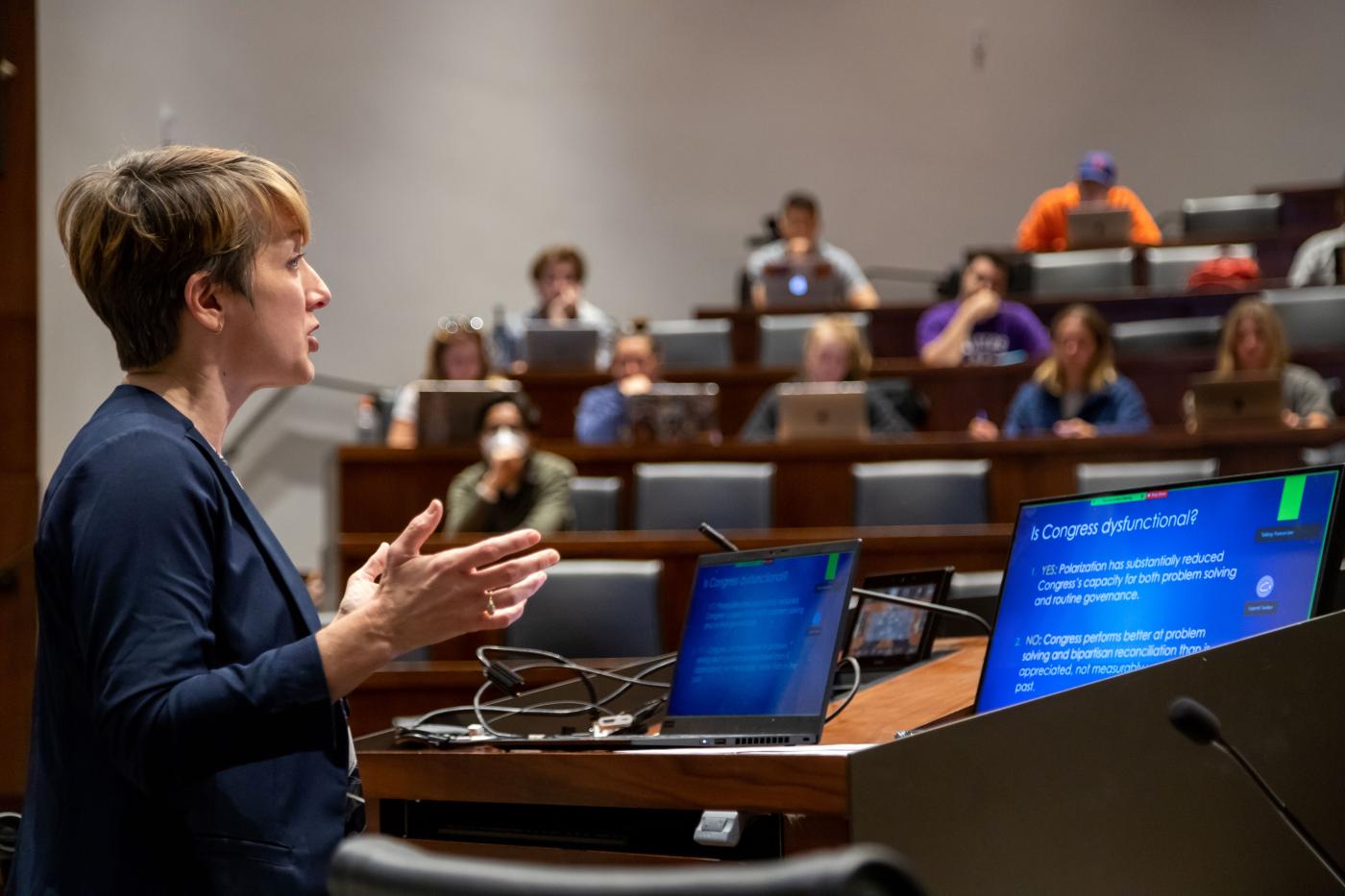

Portrait of the Discipline
Independent work in Politics is concerned with the real world issues that face individuals, communities, and nations. Some people come to politics because they are curious or concerned about a problem or issue that involves power, people, and their governments: war, poverty, bigotry, degradation of the environment. Some are fascinated by how governments work, how people reason about collective problems, or how historical forces shape political outcomes. Others find that they themselves have a taste for political action— an urge to be at the center of world events, to persuade, to bargain, to carry the day for their side. Students of politics search for systematic and reliable knowledge of what is politically possible — of what can be done and under what circumstances. This leads them to construct tentative explanations and models of political events, refining and generalizing such explanations, and testing them against experience. Potentially, all human history may be relevant to the search for political understanding.
Subfields
Independent work in the Department of Politics is conducted both across and within the traditional sub-fields of political science: American Politics, Comparative Politics, International Relations, and Political Theory.
American Politics
American Politics focuses on the U.S. political system and includes the study of the development of the American system of governance, American political institutions, the attitudes and behaviors of U.S. residents, and the relationship between institutions and people.
An undergraduate specializing in American Politics should develop competence in more than one of the following core areas: political institutions, political behavior, and American political development and Public Law. In preparation for a successful senior thesis, it is often a good idea, however, to focus on building special expertise in one particular area or the intersection of two related areas. Undergraduates whose primary field is American Politics should aim to take at least two 300-level courses in American Politics by the end of their junior year. American Politics students who choose to use statistical analysis in their senior thesis are encouraged to gain the necessary skills by taking POL 345 and POL 346. Those with interest in applying formal models to topics of American Politics should take POL 347.
Comparative Politics
Comparative Politics is a sub-field in which students investigate the similarities and differences in patterns of politics around the world. Among the many questions addressed by scholars of Comparative Politics include: Why are some countries more democratic than others? What role does the state play in economic development? What are the determinants of violence and economic growth? How do different party systems form and with what consequences for the representation of interests? What causes revolutions, and what factors lead to effective government? Unlike the sub-field of International Relations, which focuses on the interactions between states, Comparative Politics tends to address what happens within states (while also recognizing that politics are shaped by various trans-national influences such as colonialism, the Cold war, and globalization).
The Comparative Politics faculty at Princeton encourages students to develop research questions related to major scholarly debates, while also having sufficient historical grounding in particular places and world regions to be able to carry out substantive research for independent work.
International Relations
The field of International Relations includes the study of interaction between states, international law, non-state actors (i.e. Amnesty International, multinational firms, terrorists), and market forces. To prepare for writing a senior thesis, students should consider taking advanced seminars. For example, a student who expects to write a thesis about U.S. alliance strategies in East Asia might take POL 240 (International Relations, POL 385 (International Political Economy), and POL 392 (American Foreign Policy) as foundation courses and pursue more advanced studies by taking SPI 315/POL 393 (Grand Strategy).
Political Theory
Political theory is the study of the concepts and principles that people use to describe, explain, and evaluate political events and institutions. It explores the nature of justice, democracy, power, and other key ideas, developing frameworks for thinking evaluatively about pressing issues of politics and public policy of the day.
Traditionally, the discipline of political theory has approached this study from two different perspectives: the history of political thought, and contemporary political philosophy. An undergraduate specializing in political theory will ideally develop competence in both areas, and do so by progressing through the courses offered.
Engaging actively in a range of the courses offered through this sub-field of political science is excellent preparation for independent work in political theory. Writing about questions raised by the classic texts of political theory, or about questions arising in contemporary normative debates, is both a feasible and a rewarding choice for independent work. Faculty members in political theory are experienced and enthusiastic supervisors of both junior papers and senior theses.

